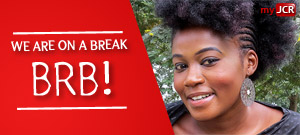
Over eight decades back, one man (Herbert J. Taylor) unfounded four questions which have stood the test of time till now.
One may be wondering what these questions are? I am glad to write and re -echo to you these questions; which are:
- IS IT THE TRUTH?
- IS IT FAIR TO ALL CONCERNED?
- WILL IT BUILD GOODWILL AND BETTER FRIENDSHIPS?
- WILL IT BE BENEFICIAL TO ALL CONCERNED?

“Is it the Truth?” is a question asked in cases of mediation or arbitration over disputes between two parties. It becomes relatively easier to pass judgment when the parties involved speak the truth.
Unfortunately, when one finds himself “in the shoes” of the disputing parties, this question is ignored. This makes the situation at hand quite complicated. We need to understand that the sensitivity of “the truth” and the situation at stake determines the degree of freedom to be enjoyed.
This becomes evident when the truth is voiced out and rather, a major role is played in exonerating a falsely accused person.The article “the” in the question shows how definite the noun “truth” is. It indicates how actual facts should be. The level of truthfulness shows the level of fairness towards the parties concerned.
“Is it fair to all concerned?” Fairness is basically being just, unbiased and equitable. Being just or fair is not enough. Fairness should be for “all concerned”. That is, it should be enjoyed by all persons involved to indicate its totality. Humans are sometimes tempted to compromise on certain grounds in various aspects of life in terms of fairness. It is important to note that temptation is just an invitation. Acceptance of that invitation becomes a choice. The truth must always be spoken for the sake of fairness.
There is no fairness when justice is enjoyed by the few privileged. Complete justice inevitably leads to building goodwill and better friendships.It also helps to create good reputation of individuals in the society.
“Will it build goodwill and better friendships?” as it stands is a question that business firms in this 21stcentury indirectly ask before coming out with products for consumers. Financial accountants refer to goodwill as an intangible fixed asset which however enhances the image of a firm. In the same vein, whatever one does has an effect on others. The effect forms a basis for creation or change of perception about the person involved. A friendly attitude towards others does not only promote good reputation. It also createsbetterfriendships.
Acting truthfully, ensuring its fair to all concerned and making sure it builds goodwill and better friendships will be incomplete without considering:
“Will it be beneficial to all concerned?” For something to be beneficial, it should have a helpful effect or improve lives.“All concerned” should be used as the yardstick to determine the scope of what is beneficial. All types of benefits considered should not be to the few privileged but toall. We should remember to always act out the saying: “do unto others as you want others to do unto you” to help in answering the question “will it be beneficial to all concerned?”
Undoubtedly, in the midst of our turbulent political environment, uncertain economic life, tensed social contexts and confused technological structures,“The Four Way Test” has stood beyond all odds and offered words of hope, a sense of direction, vision and comfort to those who have lived, are living and will live by it.
Andrews Ofosuhene
Deputy Director, Youth Service @ Rotary Club of Accra East
Project Coordinator, Rotaract National Office, Ghana
Vice President, Sol Network
Co-Founder The Five Senses Publications
Chairman, Publicity Committee, UPSA-SRC
Immediate Past President, Rotaract Club of University of Professional Studies









